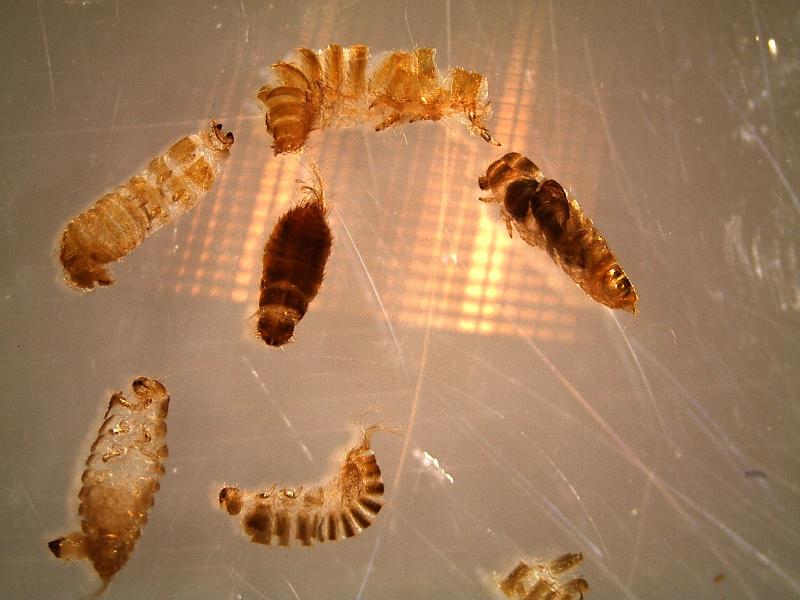Houston, Texas - U.S. Customs and Border Protection (CBP) agriculture specialists intercepted Khapra beetles at Bush Intercontinental Airport (IAH), August 31.
CBP agriculture specialists had a busy day at the end of August when they found harmful pests hidden amongst four different travelers’ belongings. The travelers arrived to IAH from Sudan, India, and Turkey on that hot August day. Dry fava beans, dry coriander seeds, and dried dates were the unknown culprits carrying live, dead, and cast skin remains of a pest which appeared eerily similar to the Khapra beetle.

Khapra beetles and cast Khapra beetle skin
remains within the baggage of air passengers
arriving at IAH recently.
“CBP agriculture specialists are well trained and work diligently to prevent this type of pest from entering the U.S. agriculture system,” said Houston Area Port Director Raymond S. Polley. “Protecting our nation’s agriculture industry is vital and I am proud of the work the CBP agriculture specialists do day in and day out.”
Khapra beetles are known to be amongst the top 100 worst invasive species in the world. They are able to live without food for long periods of time and are resistant to many types of insecticides. They feed on grain and cereal but can eat many other products to survive. Their introduction to the U.S. agriculture would be devastating.
All suspected Khapra beetles and cast skins were submitted to the U.S. Department of Agriculture (USDA) Entomologist for identification. They were confirmed to be Trogoderma granarium Everts or Khapra beetle. All remaining pests were destroyed by steam sterilization.
